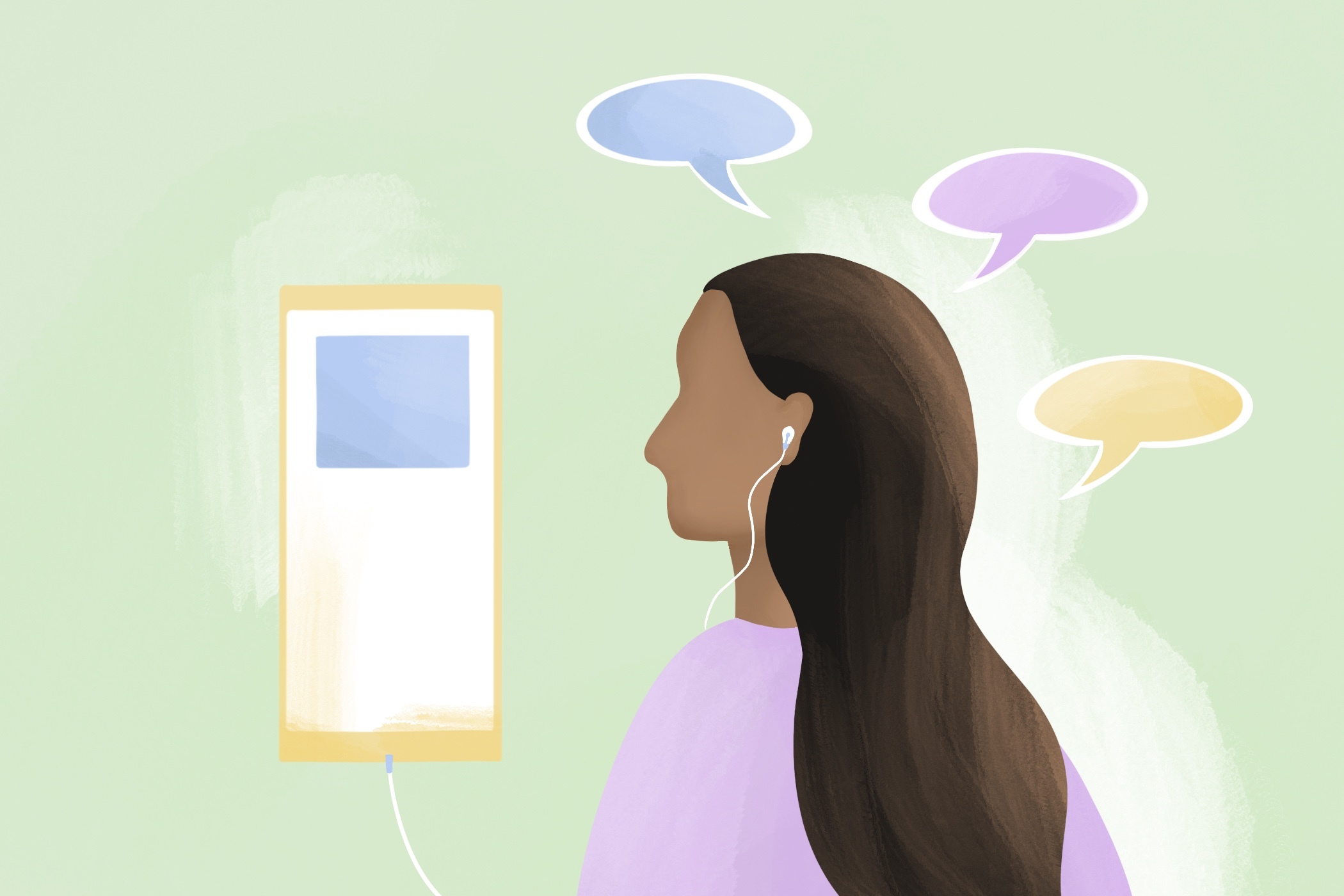If you want to commit to learning something new while sticking to COVID-19 safety guidelines, learning a new language may be the perfect option. Of course, learning a language is easier said than done, because every language has its own set of rules, but even a basic understanding of a language can set one up for greater success in the future. How do you learn a new language without the guidance of an experienced mentor? Hiring a professional online to do one-on-one Zoom calls can be expensive and can require a lot of scheduling. Instead of turning to more online Zoom meetings, a language podcast could be a more cost-effective and convenient option.
Language Podcasts: Where to Find Them and How To Use Them
With the power of the internet at your disposal, finding a language podcast is easy. If you are looking for a few starter recommendations, the programs below may work for you.
1. Full Experience Podcasts: Radiolingua CoffeeBreak Languages
After sifting through a multitude of options, I came across “CoffeeBreak Languages” while searching for resources for learning Galician. Not only do they offer free language podcasts on their website, but their YouTube Channel also offers one-minute lessons for simple yet necessary phrases, such as “It’s nice to meet you” and “My name is…” for many different languages.
If you are looking for more thorough lessons, their podcasts for the French, Italian, Mandarin, German, Spanish, English or Swedish languages would be ideal.
Mark, the founder and CEO of Radiolingua is featured in many of the language podcasts. Although he only teaches French and Spanish languages, in the other podcasts, he learns alongside the listener. This alone makes the experience immersive and possibly more encouraging, since the listener will be able to relate to Mark as well. Definitely check out “CoffeeBreak Languages” if you’re looking for a class-like feel.
2. Conversational/Travel Podcasts: Short Japanese Lessons
When traveling to a different country, learning simple expressions and being able to understand them in conversation is important. There are plenty of podcasts out there that offer shorter lessons for ease of learning. I came across one such podcast on Spotify that focuses on Japanese. In 23 lessons, “Short Japanese Lessons” teaches you how to introduce yourself, greet others and ask questions you may need to ask when in Japan.
If you are simply looking to practice a few necessary phrases for a quick conversation, shorter lessons are an option. Basic, conversational lessons for many different languages can be found easily on YouTube; some recommendations include “Learn French with Frenchpod101.com,” “Learn German with Anja” and “Learn Swahili with SwahiliPod101.com.”
The Pros of Learning a New Language Through Podcasts
1. You Control the Pace
One of the things that makes learning from a language podcast great is the flexible scheduling. The learner gets to control the amount of knowledge they absorb.
Everyone learns at different speeds. There will be lessons that will be more difficult to grasp than others. One person may struggle to learn vocabulary words, while another will find challenges in learning grammar; some will find complications in both.
A strict schedule with a mentor can hinder the learning experience, especially if the beginner is a slow learner. Unlike classes, where the pace of the class is controlled by the professor and not based on what the student can understand, podcasts offer an easier learning experience for dedicated beginners.
Expectations don’t have to be met if a beginner learns during their own free time. If they want to spend a few weeks on grasping the grammar and only a few days on a set of vocabulary, then there is no one telling them to slow down or speed up. As long as they remain devoted and enthusiastic about learning a new language through their podcast of choice, then they will be an expert in no time.
2. No Visual Distractions
Sometimes in a classroom setting or Zoom meeting, visual distractions can be a huge hindrance, especially when trying to learn a new language. To avoid having to backtrack and ask questions that may slow down the class, language podcasts can be extremely helpful. For those who are auditory learners, podcasts can be a good resource.
3. Ease of Access and No Missed Information
At times, you will miss important information in a class setting and will not be able to recover it. If you learn through podcasts or videos, however, going back in time will not be an issue. Everything will stay in one recording and be easier to digest since it is the same information being repeated.
Podcasts are an easy way to keep track of lessons. When you’re in need of a refresher, the audio is there at your disposal. Quickly download the link or simply go back to the media site where you found it, and all the information will still be there.
Although podcasts may not be everyone’s cup of tea, any additional resource for learning languages during these dark times is worth a try.

















